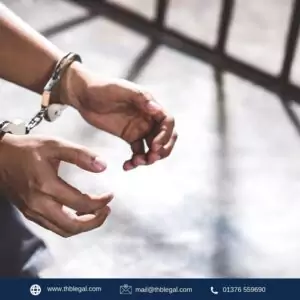Inheritance tax is changing in 2026
What farming families and business owners need to know If you own a farm,...- 11 February 2026
Posted: 05 September 2024
Getting arrested and taken to a police station is likely to be something that will cause a great deal of stress, anxiety, and concern. It is the process of having your liberty taken away, and it is important to understand what happens so you can be prepared and informed.
Put simply, an arrest is the deprivation of the liberty and freedom afforded to you by Article 5 of The Human Rights Act 1998. You have a right to your personal freedom. This is a crucial aspect of life; however, the law does allow for a person’s right to freedom to be withdrawn. Yes – the law allows for someone to be arrested. However, if your arrest and detention is found to be unlawful, The Human Rights Act 1998 prescribes that you will have an enforceable right to compensation.

Upon being arrested by a constable, they must not only explain their grounds for arresting you and why the arrest is necessary. They must also read you the caution, and it reads as follows: “You do not have to say anything, but it may harm your defence if you do not mention, when questioned, something which you later rely on in Court. Anything you do say may be given in evidence.” In plain language, upon being arrested, you do not need to say anything. You can stay completely silent; that is your choice, which is your right, and the law says so. The middle bit is the caveat. This means that if you do not say something when the police ask you a question that you later choose to use as a defence in Court, inferences may be drawn. In addition, you may be less likely to be believed. The final part is self-explanatory, and simply means that anything you do say will be noted and used as evidence.
In most cases, an arrested person shall be brought before the custody sergeant for a decision to be made as to whether their continued detention will be authorised. The decision rests with the custody sergeant alone, and they must explain why your detention is necessary. This can be for several reasons. Often it is to secure and preserve evidence, and to obtain evidence by questioning unless a person has been arrested on a warrant or for breach of bail. You will be asked questions to ensure your welfare, including whether you would like legal representation.
At its core, an interview is a conversation. You will be asked questions about your involvement or suspected involvement in a criminal offence. The interview will be under the same caution mentioned above, meaning that the same right to silence still applies. Interviews are crucial and can be used to either bolster your defence. Alternatively, to bolster the prosecution’s version of events. Therefore, it is vital you are represented by a suitably qualified police station representative. You can ask the custody sergeant at any time to contact THB’s criminal defence team. A lawyer will be dispatched to assist you and advise as to the best course of action for your interview.
At the end of your detention, a sergeant will consider next steps and potential disposal options. Common disposals are being charged and bailed to Court, being bailed to return to the police station later, being released under investigation (without bail). Alternatively, the investigation being dealt with without the need for you to attend Court, or no further action being taken. To try and secure you the best and most appropriate outcome, THB’s lawyers will liaise with the police and make representations where necessary. To ensure you have one in your corner, fighting for you.
For more information about the arrest process, our criminal defence team and how they can help. Visit our website, call our Braintree Office 01376 559690 or our Chelmsford Office 01245 493959. Alternatively, simply send an email and we will be happy to assist.
- 11 February 2026
- 09 February 2026
- 07 February 2026